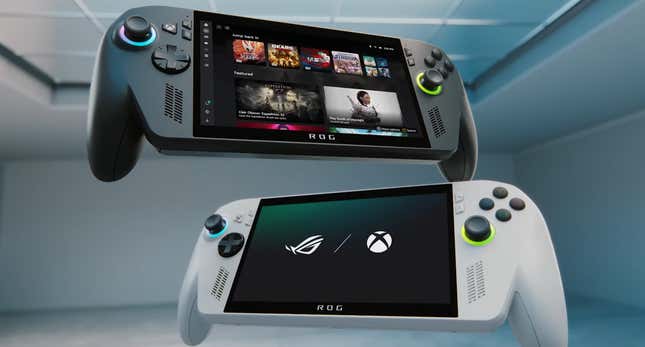
What is an Xbox? The answer to that has never been more confusing, but a new promo video from Microsoft teasing the future of its next-gen gaming hardware lineup gives an important clue: Windows. The company said it wants the OS to be the number one platform for gaming as it doubles down on a new multiplatform strategy that supports a variety of devices rather than being locked to a single console or storefront.
“I am thrilled to share we’ve established a strategic multi-year partnership with AMD to co-engineer silicon across a portfolio of devices including our next-generation Xbox consoles, in your living room and in your hands,” Xbox president Sarah Bond said in a new video touting the partnership. “Together with AMD we’re advancing the state of art in gaming silicon to deliver the next generation of graphics innovation to unlock a deeper level of visual quality and immersive gameplay and player experiences enhanced with the power of AI, all while maintaining compatibility with your existing library of Xbox games.”
The announcement comes after Microsoft recently revealed the Xbox Ally handhelds, variants of Asus’ next iteration of portable PC gaming devices that run a special version of Windows optimized to recreate the Xbox UI experience on the go. It’s part of a “Play Anywhere” promise that includes PC, existing Series X/S consoles, Game Pass on TVs, cloud gaming, and first-party exclusives ported to PlayStation 5 and Nintendo Switch. It all sounds like a promising pivot away from the company’s shrinking console business, but it also raises lots of questions about what the future of Xbox will actually look like.
A new generation of Xbox consoles is coming, but will they be traditional consoles or mini-PC devices running an evolving version of Windows? Bond stresses compatibility with existing players’ current libraries of Xbox games, but most Xbox games haven’t been ported to PC and would need specialty solutions to maintain access at the hardware level rather than just making them playable with cloud gaming like Sony does with the PS3 generation. Will it even have a disc drive? Increasingly, the vibe appears to be no.
Bond also emphasizes that the future of Xbox isn’t tied to a single store or device, once again opening the door to new hardware potentially supporting things like Steam, which has traditionally been a competitor to Windows gaming. Then there’s the bit about working to “ensure that Windows is the number one platform for gaming.” Unless that’s simply a nod to the fact that most PCs people play games on also run Windows, it sounds like a hint that the foundation of Xbox’s future will be Microsoft’s current cash cow OS with an Xbox layer overtop, rather than a bespoke platform built from the ground up for gaming as Xbox has previously been. The Verge’s Tom Warren suggested as much in his breakdown of the Xbox Ally last week.
“Everything, everywhere, whenever you want” is a compelling marketing pitch that could easily become bedeviled by the details. As it stands, no single company controls as many pieces of the puzzle as Microsoft—software, hardware, and a massive publishing apparatus—but that doesn’t mean they will magically all start fitting together in a way that makes sense or doesn’t require tons of extra investment. And the other truth about Xbox at the moment is it seems burdened more than ever by they need to justify its P&L to the larger company, which is otherwise all but obsessed with cloud computing and AI.
.